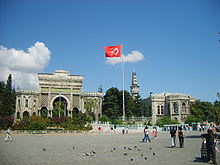
Internet availability may be seen as difficult for a country with a landscape such as Turkey with their large mountains and scattered rural lands. Turkey should further invest in systems throughout all of their metropolitan areas that will be able to handle a large amount of users at one time. They will be able to use their GSM network to obtain internet as we see growing in many other nations around Europe. The pricing will come down, as soon as we see the rest of the country obtain internet access and they there will be more companies who are offering internet which in turn will create competitive pricing. The quality and speed all relate to the fact that they are a growing country and in time, there will be more bandwidth allowed for the people who are using the internet. Their key focus should be to make an effort to get internet more convenient in the metropolitan areas, especially Istanbul, the rest will just fall into place.
Turkey has a very enthusiastic workforce that is very excited about technology. We see that there is a strong population of Turks in Germany and that there are many people in Turkey that speak German. They should reach out to German companies to see if they would be interested in outsourcing their work to Turkey. If they then obtain experience with a culture that they are familiar with, it will be much easier for them in the end to be able to get more jobs from European countries as well as the Middle East. They are in the prime location for business with either of these two continents, and they offer a cheaper workforce than many of the other European countries. Their location makes them more convenient for both the Middle East, and Europe. They should use these ideas as marketing tools to set themselves up as an IT Off shoring powerhouse.
Turkey has strong ICT sector growth. From a business perspective, the penetration of secure servers in Turkey is very good, and overall the country demonstrates evidence of a healthy demand for e-commerce. Business spending on IT resources is equally strong, and the number of enterprise access lines per capita is near the top of the nations in the sample. Government spending on computer hardware and services follows the example of the business sector, and a large percentage of government services are available online.
From an individual perspective, household Internet utilization is relatively low as 30% of the population are regular internet users considering the high availability of internet access in Turkey. Users are diverse with the 16-24 year old. The constant effort by Turkey's government to provide an architecture and support for a young user profile will allow Turkey to catapault its ICT capabilities further which will garner profits for the individual and the country

